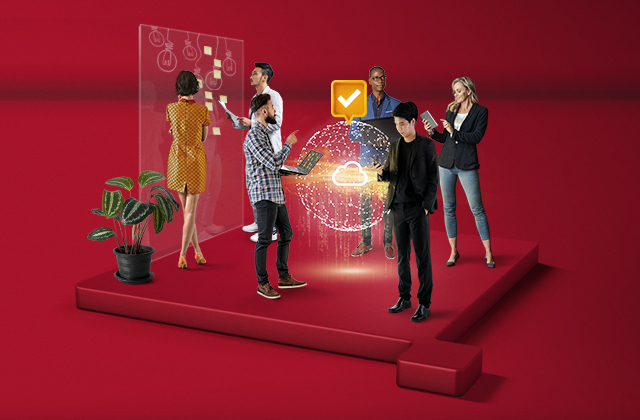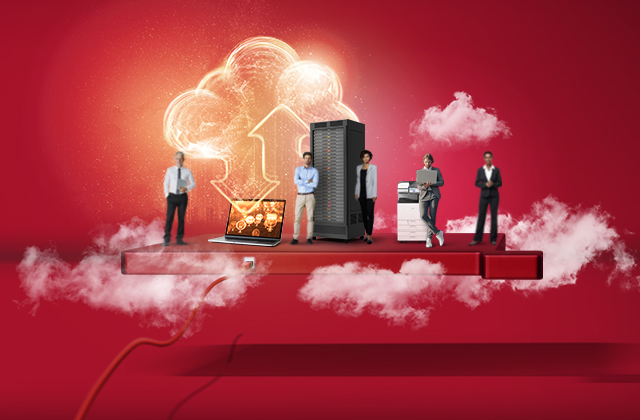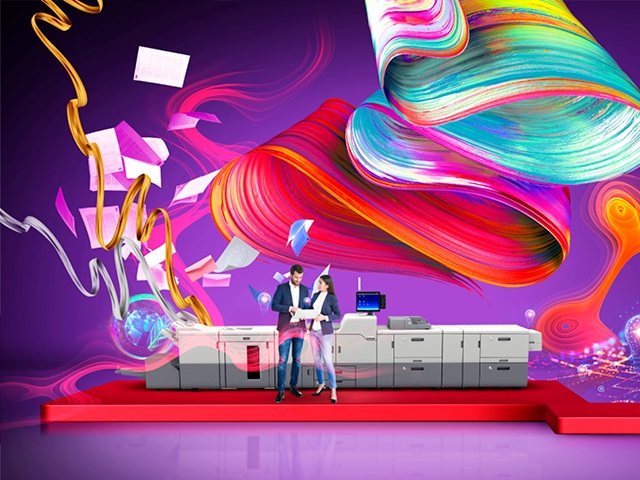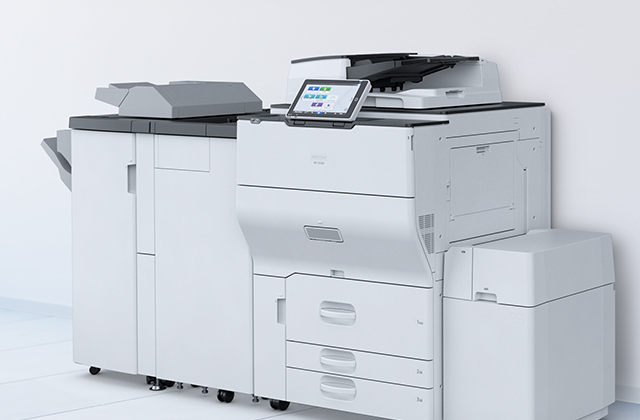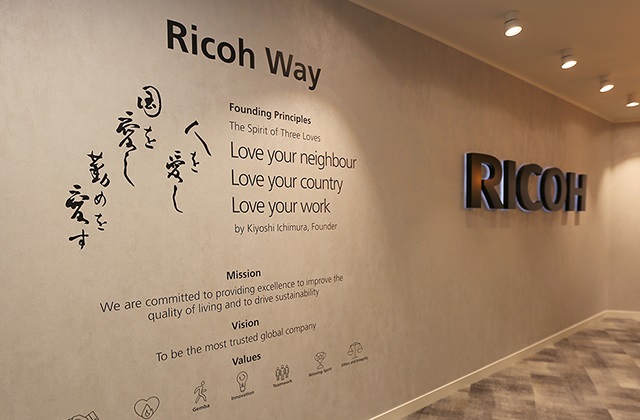Culture’s critical role in digital workplace transformation
Ricoh Europe, 26 September 2017 – Management expert Gary Hamel popularised the phrase: “You can't build an adaptable organisation without adaptable people - and individuals change only when they have to, or when they want to”.
Today’s leading businesses all encourage agility and adaptability. For years, Facebook’s mantra was “move fast and break things”. This reflected the senior leaders’ values and priorities. Clearly, this culture was the very difference between business success and failure.
81% of European employees in our recent research believe new technologies such as automation and AI are changing how we work. But they also identify closed internal cultures as a huge hurdle to its success.
This is a worry. For workplace technology to be truly impactful, people have to want to use it. Successful digital workplaces foster innovative cultures that make the most of costly technology investments. Here are three techniques for successfully laying these foundations:
- Creating an open-dialogue - technology is disruptive by nature. Staff should feel encouraged to share ideas about working smarter - even if they challenge the status-quo. Employees mostly want more speed and flexibility. But 72% think senior management only introduces new technology to cut costs. Honest, open forums help ensure employees’ concerns and suggestions make it into the decision-making process. Everyday users’ needs must be considered.
- Benchmarking against the best - SMBs in particular should analyse how market leaders use technology. Assessing these strategies and the role digital culture plays will help them catch-up. Nearly half of employees (45%) say they are attracted to work for competitors using innovative technology. A similar number (46%) question whether the technology they use at work enables them to be their most productive. Businesses can’t afford to lose talent by failing to fully empower staff.
- Future proof people - fostering a tech-ready culture is a continuous journey. All staff, old and new, must feel confident with the tools they’re given. Only 27% of employees think their company invests the right amount in technology training. Clearly, handbooks aren’t enough. Practical demonstrations, workshops and vendor support must be common-place. Proper training is essential for encouraging employees to make the most of exciting new tech.
Working with Ricoh, Mike Bohndiek, Head of IT at professional football club West Ham United comments on this. “Moving locations is a challenge for any organisation, but it also gives a welcome chance to refresh IT. Workplace technology should empower staff and reflect the business’ needs. This includes specialist requirements such as the gathering and sharing of large video files post-match. Staff now have much greater flexibility and freedom in how they work. Our managing director, for example, was able to close a business deal from abroad while securely accessing the network. Something like that just wouldn’t have been possible without the proper tech.”
Clearly great opportunities are available to workplaces that openly welcome new technology. Too much is at risk to take a gamble. A third of employees believe their business will fail within 5 years if no investments are made in new technology.
Culture drives everything and being receptive to new technologies and working practices can make or break a business. Investing in this culture builds the agility and adaptability needed for long term digital success.
For more information, visit www.ricoh-europe.com/thoughtleadership.
| Om Ricoh |
Ricoh är en ledande leverantör av integrerade digitala tjänster samt utskrifts- och bildlösningar utformade för att stödja den digitala omvandlingen av arbetsplatser och arbetsytor samt optimera företagsprestanda.
Med huvudkontor i Tokyo når Ricohs globala verksamhet kunder i cirka 200 länder och regioner, stödd av förvärvad kunskap, teknologi och organisatorisk kapacitet som har utvecklats under dess 85-åriga historia. Under det finansiella året som avslutades i mars 2023 hade Ricoh-koncernen en global försäljning på 2 134 miljarder yen (cirka 16,0 miljarder USD).
Det är Ricohs uppdrag och vision att stärka individer att finna uppfyllelse genom arbete, genom att förstå och omvandla hur människor arbetar, så att vi kan frigöra deras potential och kreativitet för att förverkliga en hållbar framtid.
Ricoh Sverige AB har huvudkontor i Solna, Stockholm och egna kontor i Göteborg och Malmö. Ricoh Sverige har dessutom ett omfattande nät av servicepartner, IT-partner och återförsäljare över hela landet.
För mer information, vänligen besök www.ricoh-europe.com alternativt www.ricoh.se
© 2023 RICOH COMPANY, LTD. Alla rättigheter förbehållna. Alla refererade produktnamn är varumärken som tillhör respektive företag.
Kontakt med media:
Ricoh Europe PLC
Charlotte Fernandez
E-post: media@ricoh-europe.com




